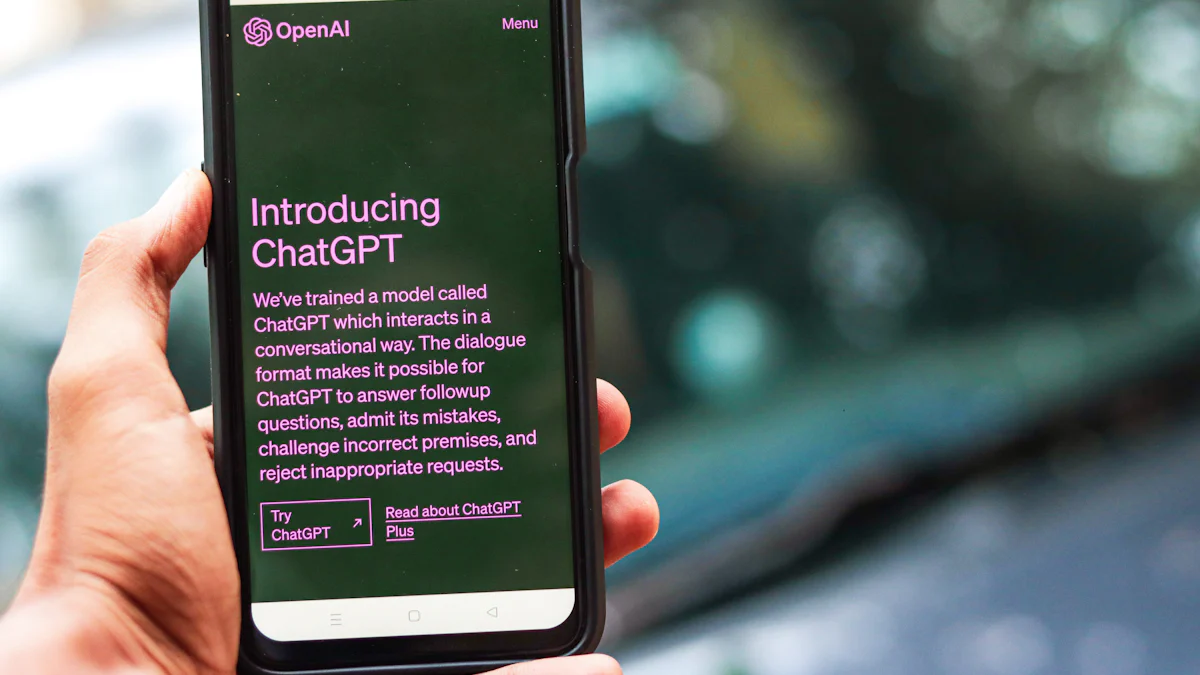Top Retail Chatbots Trends 2024: Boost Sales with AI Assistants

Revolutionizing Retail: The Power of AI Chatbots
In the ever-evolving landscape of retail, AI chatbots have emerged as powerful tools that not only enhance customer service but also drive sales. These AI-powered virtual assistants are revolutionizing the way retailers interact with their customers by providing personalized experiences and tailored product suggestions.
By leveraging advanced algorithms and machine learning capabilities, retail chatbots can analyze vast amounts of data to understand customer preferences and behaviors. This enables them to offer personalized product recommendations based on factors such as browsing history, past purchases, and individual preferences. As a result, customers feel more engaged and valued, leading to increased satisfaction and loyalty.
Moreover, AI chatbots play a crucial role in streamlining customer interactions by providing instant support for common inquiries. By offering immediate responses and solutions, chatbots help reduce wait times and free up human agents to focus on more complex issues. This not only enhances the overall customer experience but also contributes to operational efficiency within retail organizations.
Overall, the integration of AI chatbots in retail signifies a shift towards more personalized and efficient customer engagement strategies. As technology continues to advance, these virtual assistants will undoubtedly play a central role in driving sales and shaping the future of retail experiences.
The Role of Retail Chatbots in Enhancing Customer Experience
AI chatbots have become integral in enhancing customer experience within the retail industry by offering personalized product recommendations and instant customer support.
Personalized Product Recommendations
One of the key ways retail chatbots enhance customer experience is through personalized product recommendations. By analyzing customer browsing history, these AI-powered assistants can provide tailored suggestions that align with individual preferences and interests. For example, if a customer frequently searches for running shoes on a retail website, the chatbot can recommend similar products or accessories based on this browsing behavior. Moreover, by utilizing data from past purchases and preferences, chatbots can offer personalized recommendations that cater to each customer's unique needs. This level of customization not only increases the likelihood of a purchase but also fosters a sense of personalization and care, ultimately leading to higher customer satisfaction levels.
Instant Customer Support
In addition to personalized recommendations, retail chatbots play a crucial role in providing instant customer support. These virtual assistants are equipped to offer immediate responses to common inquiries such as order status, product availability, or return policies. By addressing these queries promptly, chatbots help reduce wait times for customers and ensure that their concerns are resolved efficiently. Furthermore, by handling routine inquiries, chatbots free up human agents to focus on more complex issues that require human intervention. This division of labor not only streamlines the customer service process but also ensures that customers receive timely assistance whenever they need it.
Overall, the ability of retail chatbots to deliver personalized product recommendations and instant customer support significantly enhances the overall customer experience by providing convenience, efficiency, and tailored assistance.
Use Flow Builder to retrieve data from CRM in real time for retail chatbot
In the realm of retail chatbots, the utilization of advanced tools like Flow Builder has revolutionized the way customer data is retrieved and utilized in real time.
Real-Time Data Integration
NewOaks AI, a leading provider of AI solutions, leverages Flow Builder technology to enable seamless data retrieval from Customer Relationship Management (CRM) systems. This integration allows retail chatbots to access up-to-date customer information instantly, enhancing their performance and enabling them to deliver more personalized and relevant experiences.
By utilizing Flow Builder for real-time data integration, retail chatbots can tap into a wealth of customer data stored within CRM systems. This includes details such as purchase history, browsing behavior, demographic information, and past interactions with the brand. With this comprehensive understanding of each customer's preferences and needs, chatbots can tailor their recommendations and responses accordingly, creating a more engaging and personalized shopping experience.
Moreover, real-time data integration enables chatbots to provide timely assistance based on the most recent customer interactions. For example, if a customer has recently made a purchase or inquired about a specific product, the chatbot can use this information to offer relevant suggestions or follow-up support. This level of responsiveness not only enhances the overall customer experience but also increases the likelihood of driving sales and fostering long-term customer loyalty.
Overall, by leveraging Flow Builder for real-time data integration from CRM systems, retail chatbots can elevate their capabilities and deliver more personalized and effective interactions with customers. This innovative approach not only streamlines operations but also ensures that customers receive tailored recommendations and support in real time.
Boosting Sales with AI Chatbots
AI chatbots have proven to be valuable assets in boosting sales for retailers by implementing strategies such as recovering abandoned carts.
Recovering Abandoned Carts
One of the common challenges faced by online retailers is cart abandonment, where customers add items to their shopping carts but leave the website without completing the purchase. AI chatbots can play a crucial role in recovering these potentially lost sales by sending timely reminders to customers who have abandoned their carts. These reminders can include personalized messages that highlight the items left in the cart and encourage customers to complete their purchase.
Moreover, AI chatbots can offer personalized incentives to further incentivize customers to finalize their transactions. For example, chatbots can provide discount codes, free shipping offers, or limited-time promotions to entice customers to return to their abandoned carts and complete the checkout process. By tailoring these incentives based on customer behavior and preferences, retailers can increase the likelihood of converting abandoned carts into successful sales.
Additionally, AI chatbots can engage with customers in real time as they navigate through the checkout process. By providing support and guidance at key decision points, such as selecting payment options or entering shipping information, chatbots can help streamline the purchasing journey and address any concerns or hesitations that may arise. This proactive assistance not only enhances the overall customer experience but also reduces friction in the buying process, leading to higher conversion rates.
Overall, leveraging AI chatbots to recover abandoned carts is an effective strategy for retailers to boost sales and optimize conversion rates. By combining personalized reminders, incentives, and real-time support, chatbots can reengage customers who have shown interest in making a purchase and guide them towards completing their transactions successfully.
Embracing the Future: AI Chatbots in Retail
As we look ahead, the integration of AI chatbots in the retail sector is poised to drive sales, enhance customer experiences, and maximize revenue potential through personalized interactions. By leveraging innovative technology and adapting to the evolving retail landscape, businesses can unlock a myriad of opportunities for growth and success.
AI chatbots have demonstrated their ability to not only streamline operations but also deliver exceptional customer service by providing personalized recommendations, instant support, and real-time assistance. These virtual assistants play a pivotal role in shaping the future of retail by offering tailored experiences that resonate with individual customers, ultimately fostering loyalty and increasing customer lifetime value.
In a competitive marketplace where customer expectations are constantly evolving, retailers that embrace AI chatbots stand to gain a significant competitive advantage. By harnessing the power of artificial intelligence to understand customer needs, preferences, and behaviors, businesses can create more meaningful interactions that drive conversions and build lasting relationships with their audience. As technology continues to advance, the future of retail undoubtedly lies in the seamless integration of AI chatbots to deliver personalized and engaging shopping experiences.
See Also
Boost Shopify Store with AI Chatbots for Instant Customer Assistance
Optimize Sales Funnel with AI Chatbots: A Detailed Plan
Personalize Shopify Chat with AI Chatbots
Discovering Top WhatsApp Bots: AI Chatbots in 2024
The Next Era of AI Sales Chatbots: Analyzing Automation for URL Bots

